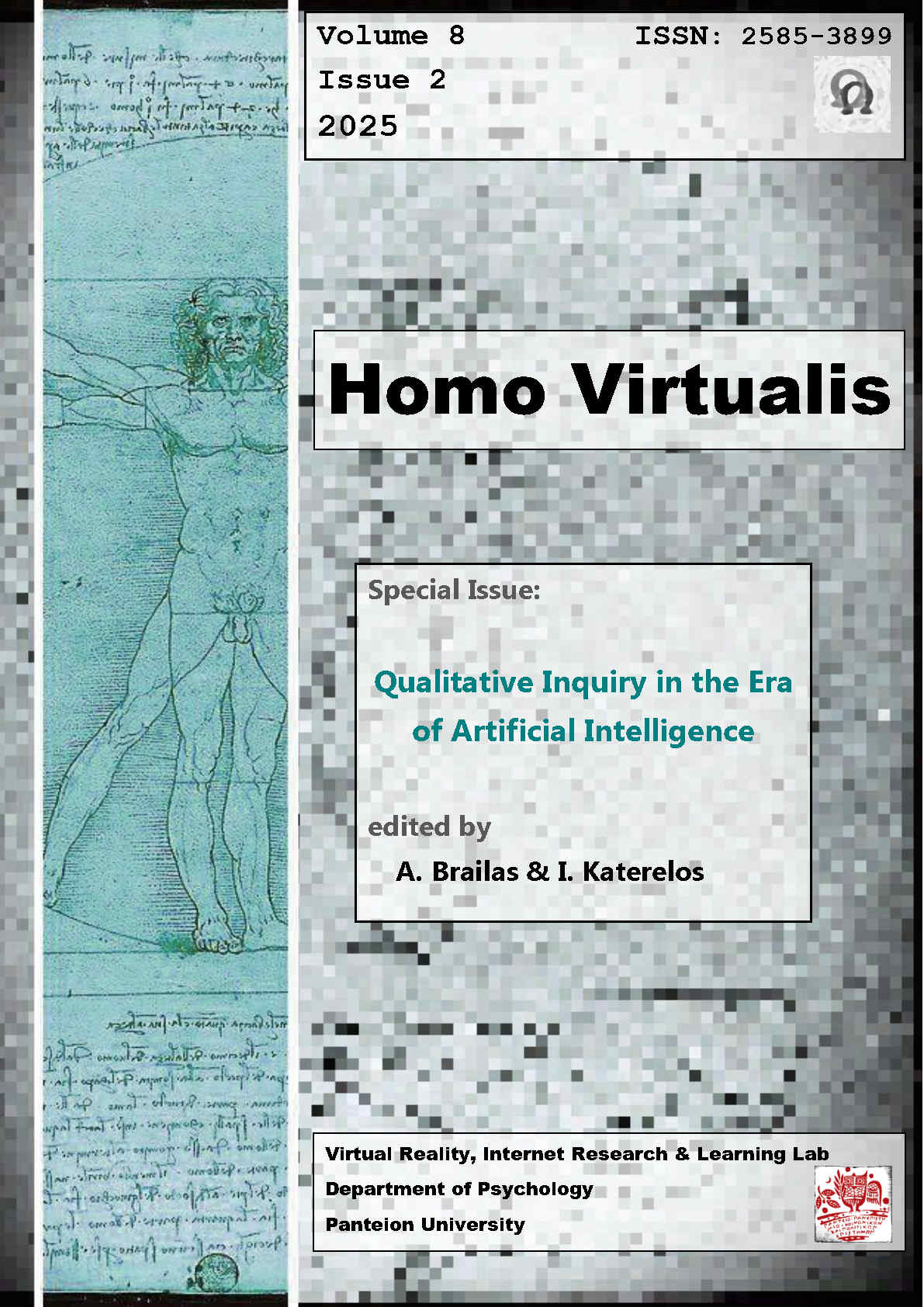Bereavement and psychological resilience: A phenomenological exploration
Περίληψη
This study examines the complex and dynamic relationship between bereavement and psychological resilience, emphasizing the mechanisms that facilitate adaptation to loss and the reestablishment of a new functional balance in everyday life. Although grief constitutes a profoundly painful experience, it may also serve as a catalyst for personal growth and existential transformation, particularly when supported by adequate internal and external resources. A qualitative research design was employed, utilizing semi-structured, multimodal interviews with 10 participants aged 18–35 years who had experienced the loss of a significant other. To facilitate meaning-making and self-reflection, artistic–expressive techniques, including drawing, storytelling, creative imagining and biographical timelines, were implemented to help participants visualize key life events with subjective significance and reflect on the role of support networks. A thematic analysis was conducted to identify recurring patterns, concepts and meanings. The findings indicate that grief is a multidimensional and nonlinear process in which emotions of sadness, denial and disorientation coexist with experiences of strength, resilience, hope and renewal. Moreover, the search for meaning along with the gradual integration of loss into one’s personal sense of self reveals that resilience is not a fixed trait but a dynamic, ongoing process, one that entails the development of advanced psychological capacities, the reorganization of emotional experience and the reconstruction of identity and purpose. These insights may inform future research and clinical practice, particularly regarding culturally sensitive and longitudinal approaches to understanding resilience in the context of loss.
Λεπτομέρειες άρθρου
- Πώς να δημιουργήσετε Αναφορές
-
Maniataki, P. (2025). Bereavement and psychological resilience: A phenomenological exploration. Homo Virtualis, 8(2), 175–219. https://doi.org/10.12681/homvir.43491
- Ενότητα
- Ερευνητικές Εργασίες

Αυτή η εργασία είναι αδειοδοτημένη υπό το CC Αναφορά Δημιουργού 4.0.
Οι συγγραφείς των άρθρων που δημοσιεύονται στο περιοδικό διατηρούν τα δικαιώματα πνευματικής ιδιοκτησίας επί των άρθρων τους, δίνοντας στο περιοδικό το δικαίωμα της πρώτης δημοσίευσης.
Άρθρα που δημοσιεύονται στο περιοδικό διατίθενται με άδεια Creative Commons 4.0 και σύμφωνα με την άδεια μπορούν να χρησιμοποιούνται ελεύθερα, με αναφορά στο/στη συγγραφέα και στην πρώτη δημοσίευση για μη κερδοσκοπικούς σκοπούς.
Οι συγγραφείς μπορούν να καταθέσουν το άρθρο σε ιδρυματικό ή άλλο αποθετήριο ή/και να το δημοσιεύσουν σε άλλη έκδοση, με υποχρεωτική την αναφορά πρώτης δημοσίευσης στο περιοδικό
Οι συγγραφείς ενθαρρύνονται να καταθέσουν σε αποθετήριο ή να δημοσιεύσουν την εργασία τους στο διαδίκτυο πριν ή κατά τη διαδικασία υποβολής και αξιολόγησής της.



